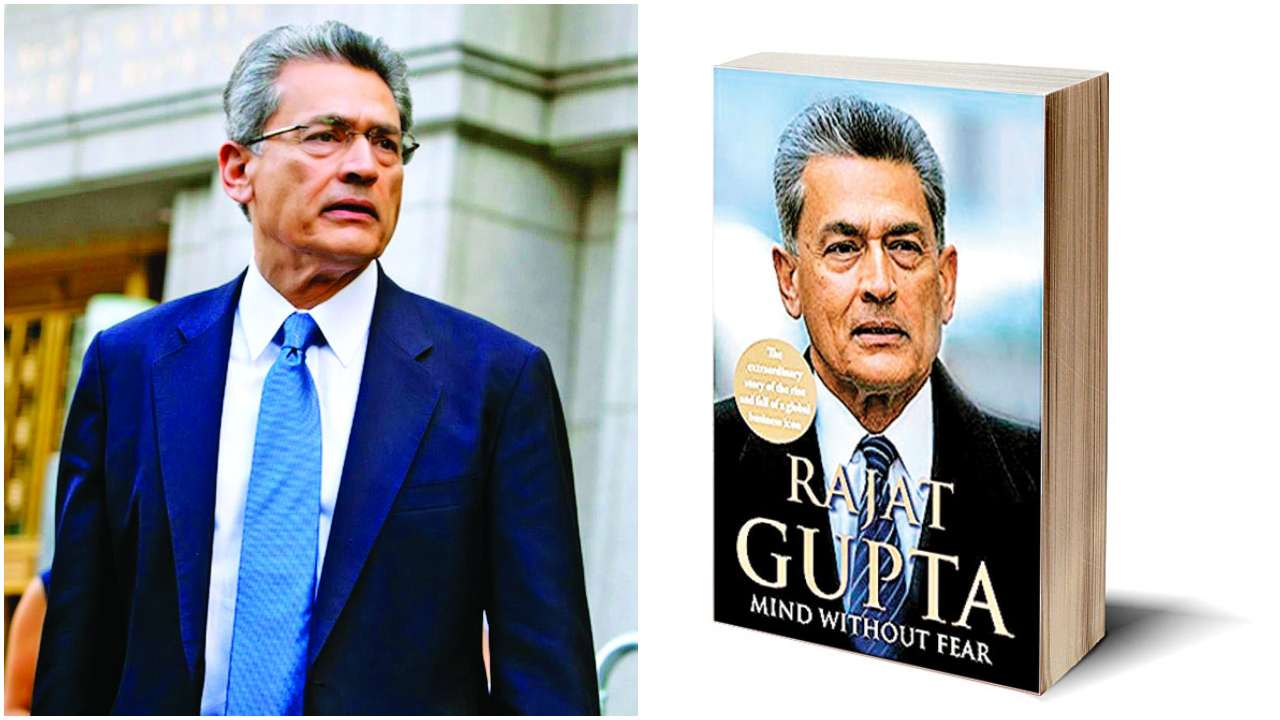
Rajat Gupta invokes Tagore in the title, but the poem this book brings to mind is Kipling's 'If', especially the lines: "If you can trust yourself when all men doubt you." Self-belief isn't easy, especially as the details of Gupta's disgrace – he was convicted by a US court of passing on information to hedge fund manager Raj Rajaratnam – are all over the Internet. But this book is Gupta's bid to tell his side of the narrative, to explain the circumstances surrounding his seemingly incriminating exchanges with Rajaratnam. It doesn't make a difference to the legal case against him – a 'convicted felon' as he calls himself several times – but he hopes the book might just serve to redeem his reputation in the public eye as he attempts to pick up the threads of his life three years after his release from jail. Excerpts from a conversation with Gargi Gupta.
In my mind, I wrote it primarily for the young people who were inspired by my story, but felt let down when all this happened to me. Also, I wrote it for me, as a form of catharsis, to confront my own feelings. I wrote it for my kids and grandkids. My grandkids are young; they don't realise what happened to me. But someday they will. Probably, also, I thought that I could write an interesting story about an interesting life, forget about that it is mine.
Yes, of course. But I also wanted to write about my life, not just the trial. That's just five-seven years out of a 50-year professional life.
Many people let me down and I was very hurt by that. But, I don't have bitterness in my heart. Bitterness just saps you; it doesn't affect those you are bitter towards. My father used to always say you can't control what happens to you, but you can control how you react to it.
Those who've known me for a long time don't accept that I could have done it. I've had insider information, corporate secrets for 40 years. Why would I? The basic tenet of insider trading – that you did it for criminal intent and personal gain – just does not exist in my case.
It is the system. Most prosecutors have political ambitions. They are all about media and publicity. They are all about winning at any cost. They are not about searching for the truth. That's how it is unfortunately.
There is no fight left. I accept the outcome.
I have re-engaged with ISB and PHFI. But I don't want to become board member or chairman at these institutions. Formal positions don't interest me. It's more about helping them think through the next phase of development, be a discussion partner and help them in whichever way I can. They are like my kids.
I am working on the reform of the criminal justice system. One is the Marshal Project, a journalistic organisation which sheds light on all that's wrong with the criminal justice system. Then there is an organisation called Rise N Step, which is about helping prisoners after their release to become productive members of society. And a similar organisation in the east coast called the Bold Start with another fellow prisoner. These are nascent things and I hope to build these up.
I am doing a fair amount in public health through the Win Foundation. We have picked a demographic pool of 300,000 people in Gujarat, and mapped their state of health, access to facilities, etc; and are trying different interventions. The idea is to bring societal impact through technology. It is primarily directed towards maternal and child health, and clean water and sanitation.
Book: Mind Wthout Fear
Author: Rajat Gupta
Publisher: Juggernaut Books
Pages: 368
Price: Rs 524